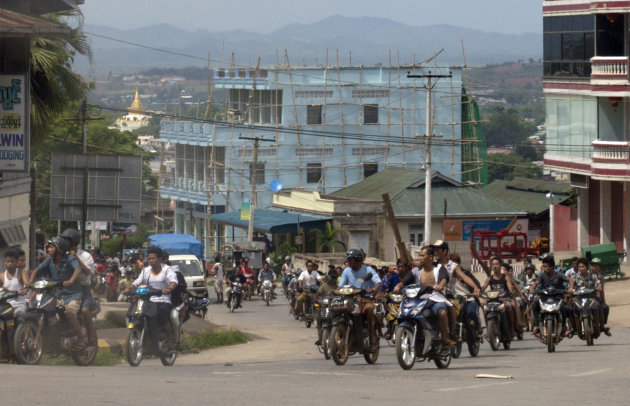Evolution To Freedom
"I never expected that such racial violence would erupt in Lashio. Our small town is multi-ethnic and we have lived in peace for a long time."
Sai Myint Maung, local politician
Burma, which its former military government called Myanmar, was described as a hermit kingdom not all that long ago. A closed society. Indifferent to the rest of the world, placid in their apartness and eager to keep it that way. The totalitarian military government in any event was constantly criticized by the international community; best to keep it out of Burma's affairs.
Except when it suffered catastrophic natural events like earthquake upheavals and international humanitarian aid rushed in to the rescue of Burmese trapped in remote-area mudslides, when the Burmese military failed to respond as rapidly and helpfully as the emergency situation impacting on thousands should have demanded of them.
On its border with impoverished Bangladesh, Burma has thousands of unwanted Bangladeshi refugees, Muslims who have lived there for decades. Where Burma is Buddhist. But, as the local politician from Lashio remarked, his town was comfortably pluralist, tolerant, people getting along. But something quite dreadful has happened in Burma.
Even while there is now, under an elected administration, and with the freeing of Burma's celebrated dissident, Nobel Peace Prize winner Aung San Suu Kyi able after long years of home imprisonment, to join the new parliament -- and new freedoms have come to the Burmese, intolerance of the minority among them has risen, and riots have taken place across the country.
Muslim communities have been targeted, and Muslims have been killed in an orgy of religious and ethnic carnage. Pogroms are launched by mobs of Burmese Buddhists, sometimes with clergy involved in driving up anger against the Muslims, and rampaging mobs rage through Muslim areas, burning mosques, schools, shops, ransacking and murdering.
Associated Press/Gemunu Amarasinghe - Hundreds of Buddhists on motorcycles armed with sticks patrol in the streets of in Lashio, northern Shan State, Myanmar, Wednesday, May 29, 2013.
The government of President Thein Sein declares itself outraged at the atrocities and appeals for measured control, for people to refrain from attacking others, but it has had little influence on what occurs. In some areas Muslims have fought back and inflicted damage on their Buddhist attackers. But Muslims are by far the victims of these paroxysms of intolerance.
"Damaging religious buildings and creating religious riots is inappropriate for the democratic society we are trying to create. Two religious buildings and some shops" were burned in Lashio, wrote presidential spokesman Ye Htut on his Facebook page. "Any criminal act will be dealt with according to the law", he emphasized. Yet there have been no criminal trials of Buddhists involved in the violence.
And the highly respected icon of human rights and freedoms, Aung San Suu Kyi has been criticized for her muted stance on the problems her country is struggling with. Muslims hide in their homes, fearful of the violence that overcame other parts of the country, the attacks that killed hundreds last year in western Burma.
Hundreds of people died in the clashes that took place in Western Rakhine state last year, between Buddhists and Muslims.
Labels: Burma, Conflict, Crisis Politics, Human Relations, Islam


<< Home